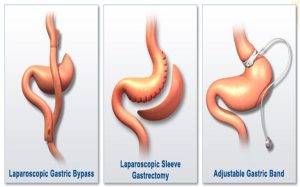- 12 February 2024
- 138
Is Alcohol and Weight Loss Surgery a Risky Combination?

Introduction
Weight loss surgery, also known as bariatric surgery, has become increasingly popular as a solution for individuals struggling with obesity. However, concerns arise regarding the consumption of alcohol post-surgery. Is it safe? What are the risks involved? In this article, we delve into the potential dangers of combining alcohol with weight loss surgery, providing insights and precautions for those considering this path.
Understanding Weight Loss Surgery
What is Weight Loss Surgery?
Weight loss surgery encompasses various procedures aimed at reducing the size of the stomach or altering the digestive process. These surgeries restrict food intake or cause malabsorption of nutrients, resulting in significant weight loss for individuals with obesity.
Types of Weight Loss Surgery
1. Gastric Bypass Surgery
Gastric bypass surgery involves creating a small pouch from the stomach and connecting it directly to the small intestine. This bypasses a portion of the stomach and small intestine, leading to reduced calorie absorption.
2. Gastric Sleeve Surgery
During gastric sleeve surgery, a portion of the stomach is removed, leaving a smaller, sleeve-shaped stomach. This restricts the amount of food that can be consumed, promoting weight loss.
3. Laparoscopic Adjustable Gastric Banding
Laparoscopic adjustable gastric banding involves placing a band around the upper part of the stomach, creating a small pouch. The band can be adjusted to control food intake.

Alcohol and Weight Loss Surgery: The Risks
Impaired Alcohol Metabolism
Following weight loss surgery, the body’s ability to metabolize alcohol may be altered. The reduced size of the stomach or changes in the digestive process can lead to faster absorption of alcohol into the bloodstream, resulting in higher blood alcohol levels with smaller amounts of alcohol consumption.
Increased Risk of Alcohol Abuse
Individuals who undergo weight loss surgery may experience changes in their relationship with food and beverages, including alcohol. Some individuals may turn to alcohol as a substitute for food, leading to an increased risk of alcohol abuse or dependence.
Nutritional Deficiencies
Alcohol contains empty calories and provides little to no nutritional value. Consuming alcohol post-surgery may further exacerbate nutritional deficiencies commonly associated with weight loss surgery, such as deficiencies in vitamins and minerals like vitamin B12, folate, and iron.

Potential Complications
1. Dumping Syndrome
Dumping syndrome is a common complication of weight loss surgery characterized by rapid gastric emptying. Consuming alcohol can exacerbate dumping syndrome symptoms, including nausea, vomiting, diarrhea, and dizziness.
2. Liver Damage
Excessive alcohol consumption can lead to liver damage, particularly in individuals who have undergone weight loss surgery. The combination of alcohol and altered metabolism post-surgery may increase the risk of liver disease.
3. Weight Regain
Alcohol is high in calories and can contribute to weight regain after weight loss surgery. Excessive alcohol consumption can sabotage weight loss efforts and hinder long-term success.

Precautions and Recommendations
Consult with Healthcare Professionals
Before consuming alcohol post-weight loss surgery, it is essential to consult with healthcare professionals, including surgeons, dietitians, and mental health professionals. They can provide personalized guidance and recommendations based on individual health status and surgical history.
Limit Alcohol Consumption
If alcohol consumption is deemed appropriate post-surgery, it is crucial to do so in moderation. Follow recommended guidelines for alcohol intake and be mindful of portion sizes. Avoid excessive or binge drinking to minimize potential risks and complications.
Monitor Nutritional Status
Maintain regular follow-up appointments with healthcare providers to monitor nutritional status and address any deficiencies or concerns promptly. Follow dietary guidelines provided by healthcare professionals to ensure adequate nutrient intake and support overall health and well-being. Explore More About Health (Arthritis)
Stay Informed and Educated
Stay informed about the potential risks and implications of consuming alcohol post-weight loss surgery. Educate yourself about proper nutrition, hydration, and lifestyle habits to support your weight loss journey and minimize complications.
Conclusion
While weight loss surgery can provide significant benefits for individuals struggling with obesity, it is essential to approach alcohol consumption with caution post-surgery. The combination of alcohol and weight loss surgery poses various risks, including impaired alcohol metabolism, increased risk of alcohol abuse, nutritional deficiencies, and potential complications. By consulting with healthcare professionals, limiting alcohol consumption, monitoring nutritional status, and staying informed, individuals can make informed decisions and prioritize their health and well-being post-surgery.

